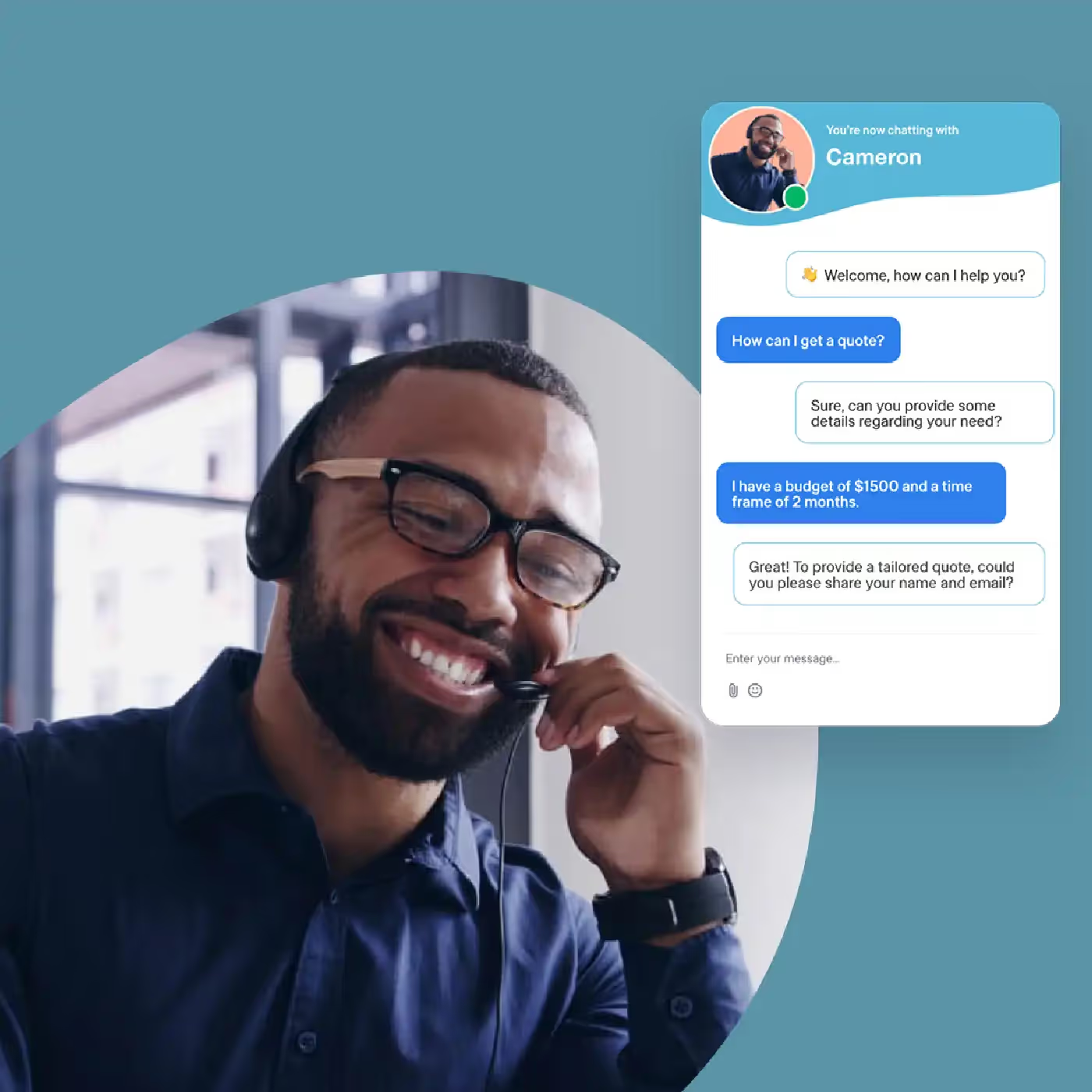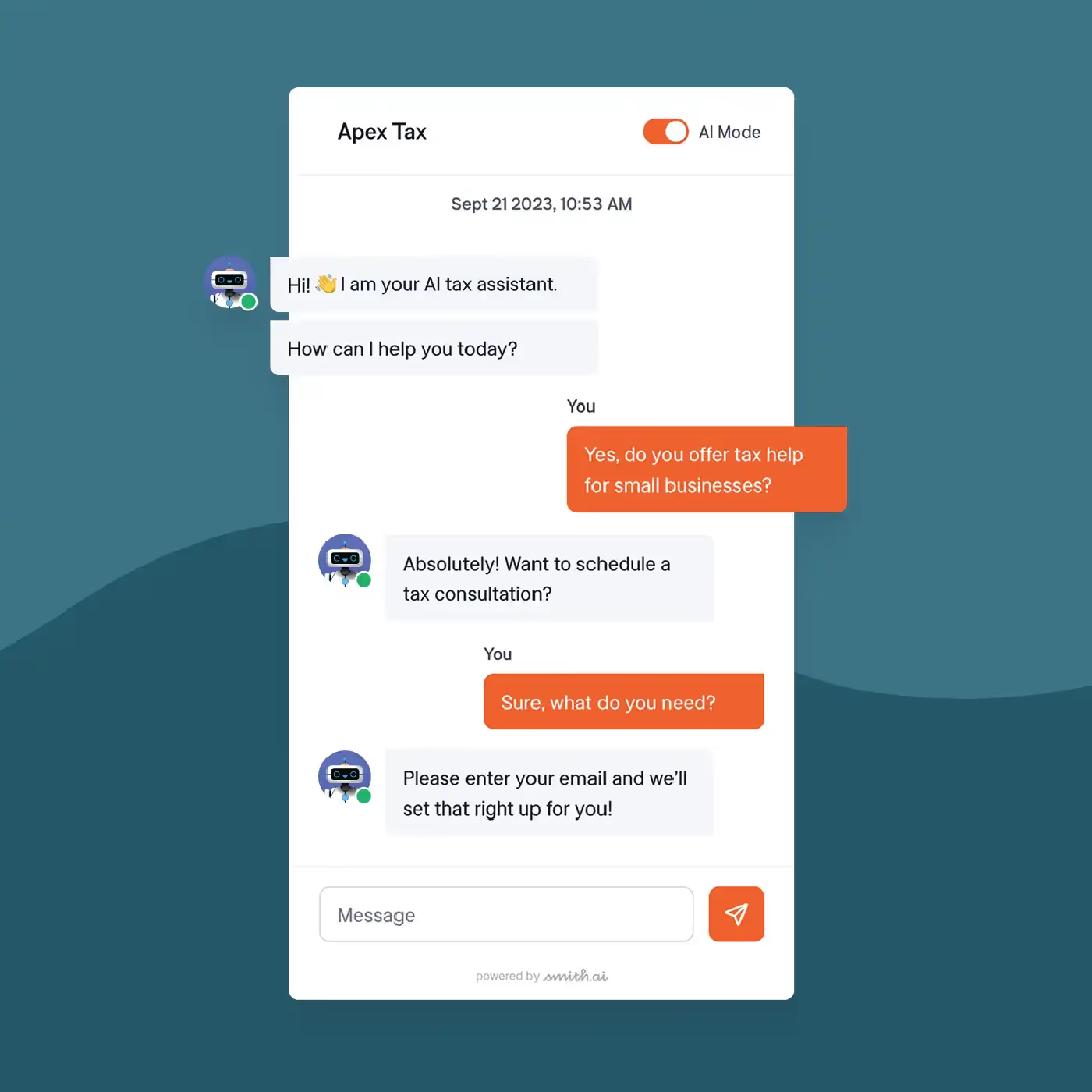The Human Touch in AI Call Centers: Creating The Perfect Balance
The Human Touch in AI Call Centers: Creating The Perfect Balance

AI has gotten impressively good, which is why we’re starting to see applications like AI call centers. But here's a reality: when given the choice, 86% of customers prefer to interact with a human representative over AI systems. Why? Because current AI still lacks genuine empathy, emotional intelligence, and the ability to build trust (for now).
Satya Nadella, CEO of Microsoft, emphasizes that a blend of human empathy and AI should be embraced, with AI augmenting human agents rather than acting as a barrier. While AI handles routine tasks efficiently, humans excel at complex problem-solving and emotionally charged situations where customers need reassurance.
The Importance of Human Oversight in AI Call Center Operations
The AI call center market is growing rapidly — projected to reach $4.1 billion by 2027. But maintaining human oversight isn't just nice-to-have; it's essential.
Role of Human Agents in the AI Call Center
Human agents bring unique capabilities to the table. Their emotional intelligence allows them to detect subtle emotional cues, adjust their approach in real-time, and provide authentic reassurance to frustrated customers. Unlike chatbots following scripts, humans can de-escalate tense situations through genuine understanding.
For example, imagine a customer calling about a denied insurance claim for cancer treatment. An AI might efficiently explain the policy limitations, but a human agent can hear the desperation in the caller's voice, acknowledge their fear, and work to find alternative solutions while providing emotional support.
Business leaders project that AI could manage 70-80% of customer service interactions within the next few years, yet they acknowledge that 20-30% will still require skilled human agents.
Ethical Concerns in AI Call Centers
Implementing AI in call centers raises important ethical considerations. Data privacy concerns emerge when AI systems collect and process personal information, highlighting the importance of AI data and confidentiality. Without proper oversight, automated systems risk perpetuating societal biases, potentially creating discriminatory customer experiences.
"AI hallucinations"— where AI generates plausible but factually incorrect information — pose serious risks in customer service contexts. Would you want an AI confidently giving wrong information about your health insurance coverage or financial accounts?
The most effective approach positions AI as an assistant rather than a gatekeeper, ensuring customers can transition to human agents when needed.
Real-World Examples of Successful AI-Human Collaboration in Call Centers
AI-based call centers are increasingly demonstrating the benefits of combining AI efficiency with human empathy across various industries.
Legal Practices
In legal services, AI tools now handle document review and analysis that once consumed countless attorney hours. AI systems scan thousands of case documents to identify relevant information, while human legal professionals provide the critical thinking and ethical judgment necessary for effective representation.
Industry Applications
Voice assistants now handle the flood of scheduling requests for plumbers, electricians, and HVAC technicians. Instead of having skilled professionals tied up on the phone explaining service options, the AI handles routine appointment requests while humans focus on emergency dispatching and technical troubleshooting that requires expertise.
Financial services firms employ AI for tasks such as analyzing market trends and AI lead generation, while human advisors leverage these insights to provide personalized guidance.
Identifying Tasks for Automation vs. Human Interaction in AI Call Centers
Tasks Suited for AI
AI excels at handling repetitive, data-driven tasks:
- Automated ticketing and routing: AI systems categorize, prioritize, and route customer service tickets based on content and urgency. When a customer submits a ticket about a disputed transaction, an AI system can immediately categorize it as high priority and route it to the appropriate department while sending an automated acknowledgment.
- Repetitive inquiries: AI chatbots, Interactive Voice Response systems, and voicebots in customer service efficiently manage frequently asked questions like "What are your hours?" or "How do I reset my password?"
- Data entry and processing: AI handles tedious data management tasks in seconds that would take humans hours to complete.
- Inventory management: Companies like Zara employ AI to manage inventory levels by predicting demand based on real-time sales data, preventing stockouts and overordering.
Tasks Needing Human Touch
Despite AI's capabilities, certain situations demand human intervention:
- Complex problem-solving: When issues require creative thinking or don't fit standard protocols, human agents provide the flexibility and judgment that AI lacks.
- Emotional situations: Human agents excel at empathy and emotional intelligence. If your customers are dealing with emotionally charged situations like financial hardship or health concerns, would you want their first interaction to be with an algorithm or a compassionate human being?
- Multifaceted interactions: Humans can juggle empathy, context understanding, and solution development simultaneously — a level of multitasking beyond AI's current capabilities.
- Ethical decision-making: Situations requiring moral judgment benefit from human discernment and ethical reasoning.
Techniques for Smooth AI-to-Human Handoffs
A poorly executed handoff can undo all the goodwill built during the automated portion of a customer interaction. Utilizing the right AI answering service can greatly improve these transitions. Here are effective technology solutions to ensure these transitions feel natural:
Technology Solutions
- AI-powered sentiment analysis: This technology detects customer emotions during interactions, enabling timely handoffs when frustration or confusion is detected. The system can automatically escalate conversations when negative sentiment reaches a certain threshold, preventing customer dissatisfaction before it escalates.
- CRM integrations: Chatbots integrated with Customer Relationship Management systems can instantly provide human agents with relevant customer history during handoffs. This eliminates the annoying need for customers to repeat information and gives agents the context they need to pick up the conversation seamlessly.
- Omni-channel communication platforms: These systems allow conversations that begin on one platform (like a website) to transition smoothly to another channel (such as phone or email) during handoff, ensuring the customer's preferred communication method is respected.
- Live chat platforms: Solutions like Kommunicate are specifically designed to support chatbot-to-human transitions, allowing conversations to continue within the same window for a cohesive customer experience.
Overcoming Implementation Challenges in AI Call Centers
Implementing AI solutions comes with tangible obstacles that require practical solutions:
Common Challenges
- Integration Complexities: Connecting AI technologies with existing customer service systems often creates technical headaches and implementation delays.
- Data Privacy and Security Concerns: Protecting sensitive customer information while leveraging AI capabilities requires robust security measures and compliance protocols.
- Resistance to Change: Staff fears about job displacement aren't unfounded. The best implementations address these concerns directly by showing how AI will change roles rather than eliminate them.
Future Trends in AI-Human Customer Service
Staying ahead of emerging customer service trends is crucial for businesses aiming to enhance their customer experiences.
Advanced AI Chatbots Beyond Simple Q&A
One of the key customer service trends is the rise of advanced AI chatbots that go beyond simple Q&A. The chatbot market is projected to surge from $5.4 billion in 2023 to $15.5 billion by 2028. But the real transformation isn't in volume — it's in capability.
Next-generation systems will handle complex, multi-step problems rather than just answering basic questions. By integrating with CRM systems and learning from each interaction, AI chatbots will transform from basic answering tools into sophisticated virtual agents capable of understanding context, emotion, and intent in customer queries, offering significant Conversational AI benefits. This evolution promises to reduce customer service costs by approximately 30% while improving customer satisfaction.
If your company relies on appointments, consider this: most calls you receive are likely from clients looking to make new appointments or modify existing ones. These routine scheduling tasks are perfect candidates for advanced AI handling.
Hyper-Personalized Customer Experiences
Future AI systems will create truly individualized support experiences by analyzing thousands of data points to predict customer needs before they even arise. This shifts the service model from reactive to proactive.
Imagine an AI system that notices a pattern of customers struggling with a specific feature after a software update. Instead of waiting for complaints, it could proactively send personalized tutorial videos to users most likely to encounter difficulties.
Strategic Human-AI Collaboration
According to a Hiver survey, 50% of customer support professionals anticipate working alongside AI rather than being replaced by it. This collaborative approach allows AI to manage routine inquiries, freeing human agents to focus on complex issues and building meaningful customer relationships.
The future of customer service isn't about choosing between AI efficiency and human empathy — it's about creating systems where each enhances the other's strengths.
Conclusion
Don't make assumptions about what your customers prefer — ask them directly and monitor their satisfaction with both AI and human interactions. Companies that embrace a balanced approach will create customer service experiences that stand out in an increasingly automated world—valuing efficiency without sacrificing the personal connection that builds lasting loyalty.
Stop losing potential clients to voicemail or impersonal automation. The AI Receptionist from Smith.ai offers a blend the best of AI efficiency with human warmth to create the perfect customer experience.
- 24/7 availability ensures you never miss an important call
- AI handles routine scheduling and information requests
- Skilled human receptionists step in for complex situations
- Seamless CRM integration keeps all your customer data organized
- Pay only for the time you actually use
Book your free consultation with Smith.ai today and discover how their balanced approach can help you win more business while delivering exceptional customer service.
Take the faster path to growth. Get Smith.ai today.
Key Areas to Explore

Your submission has been received!












.svg)



